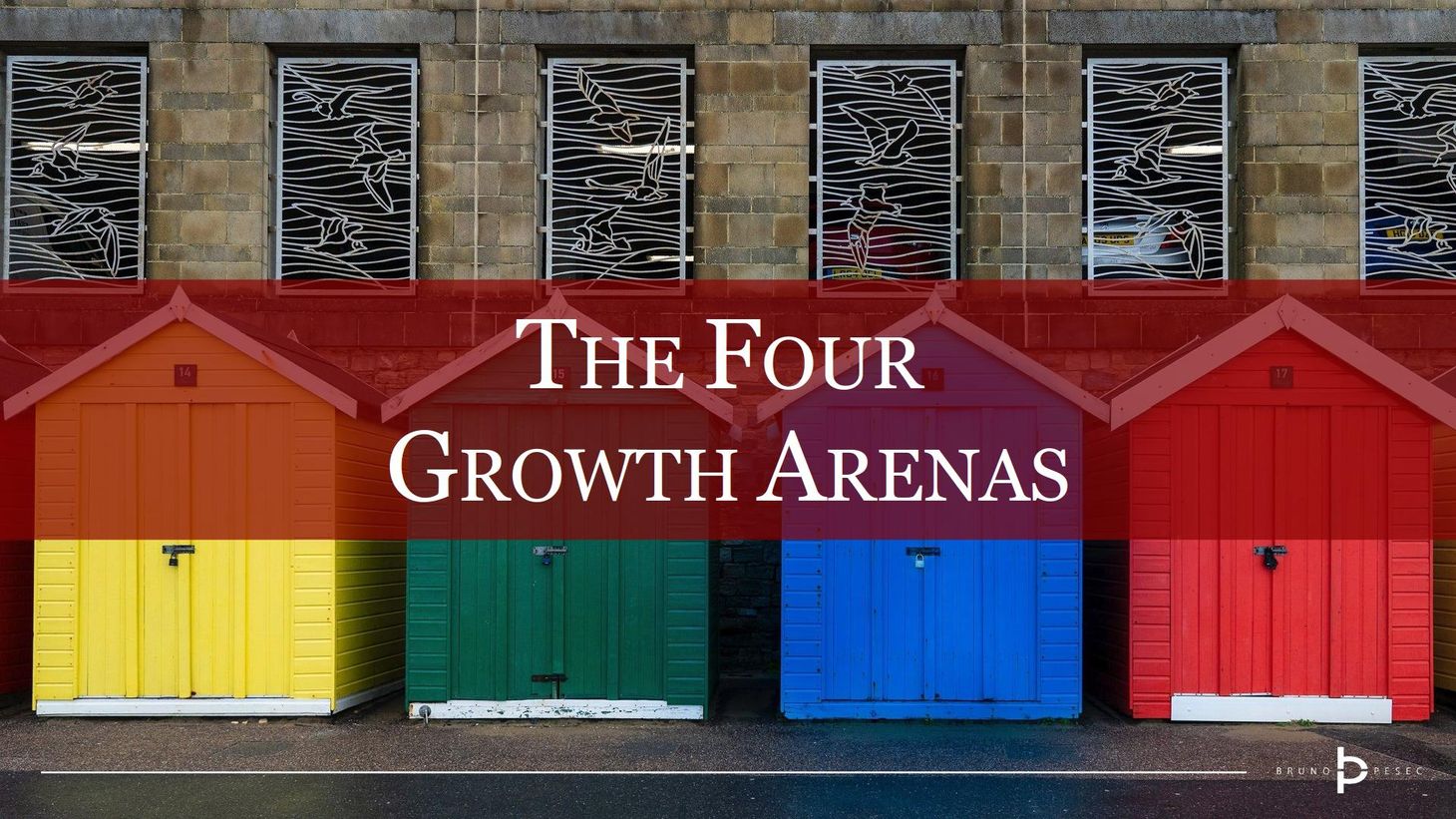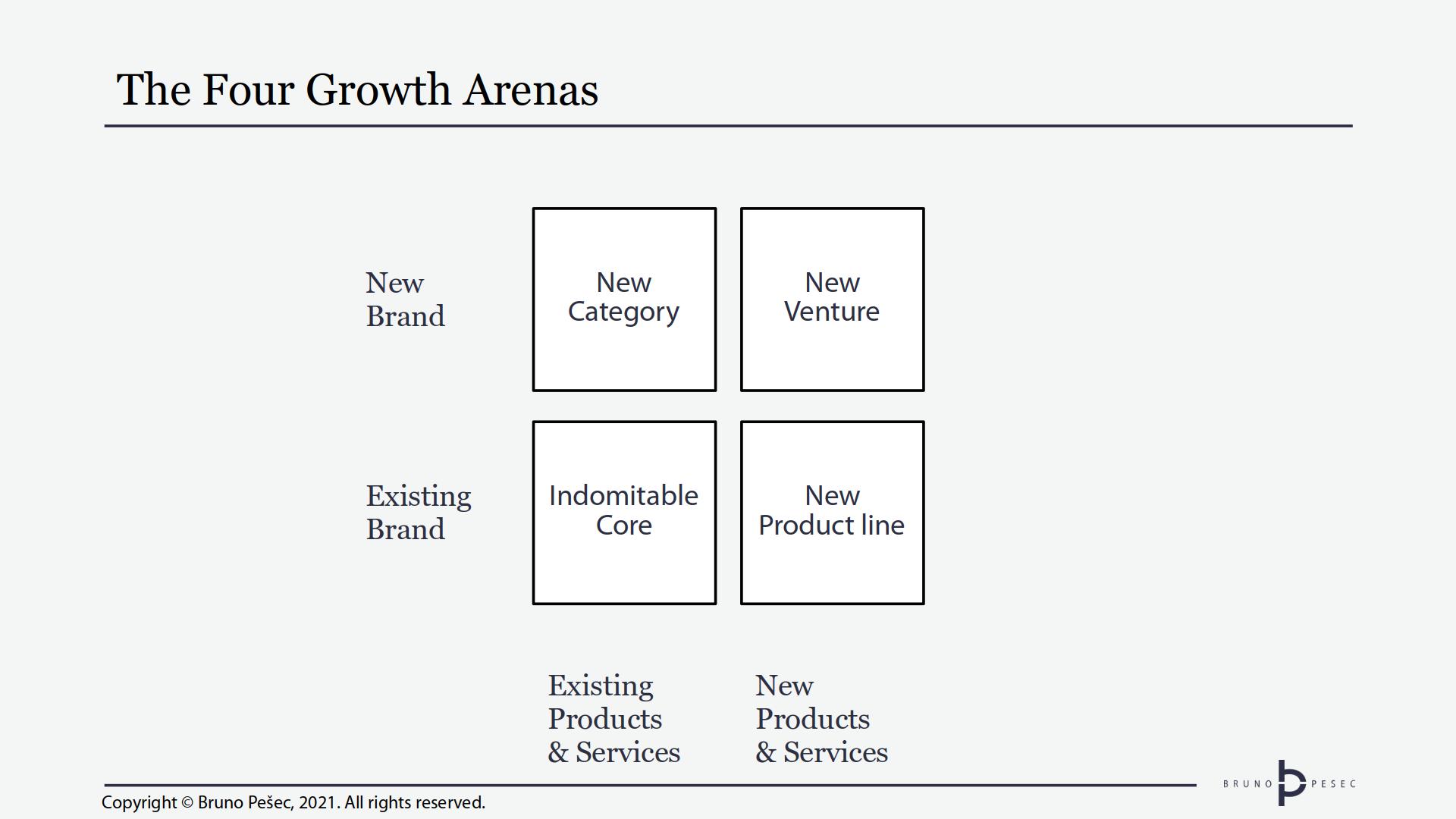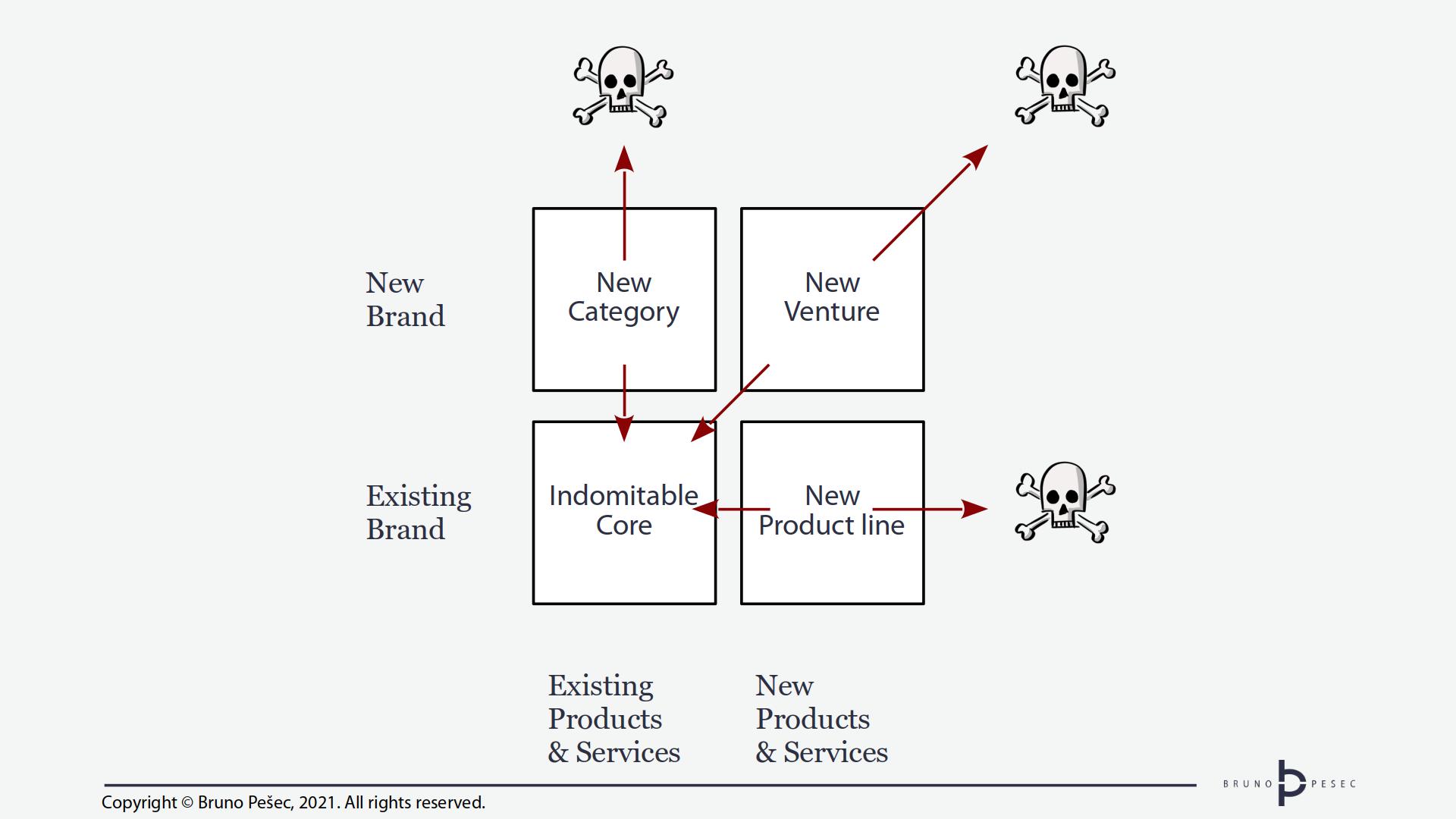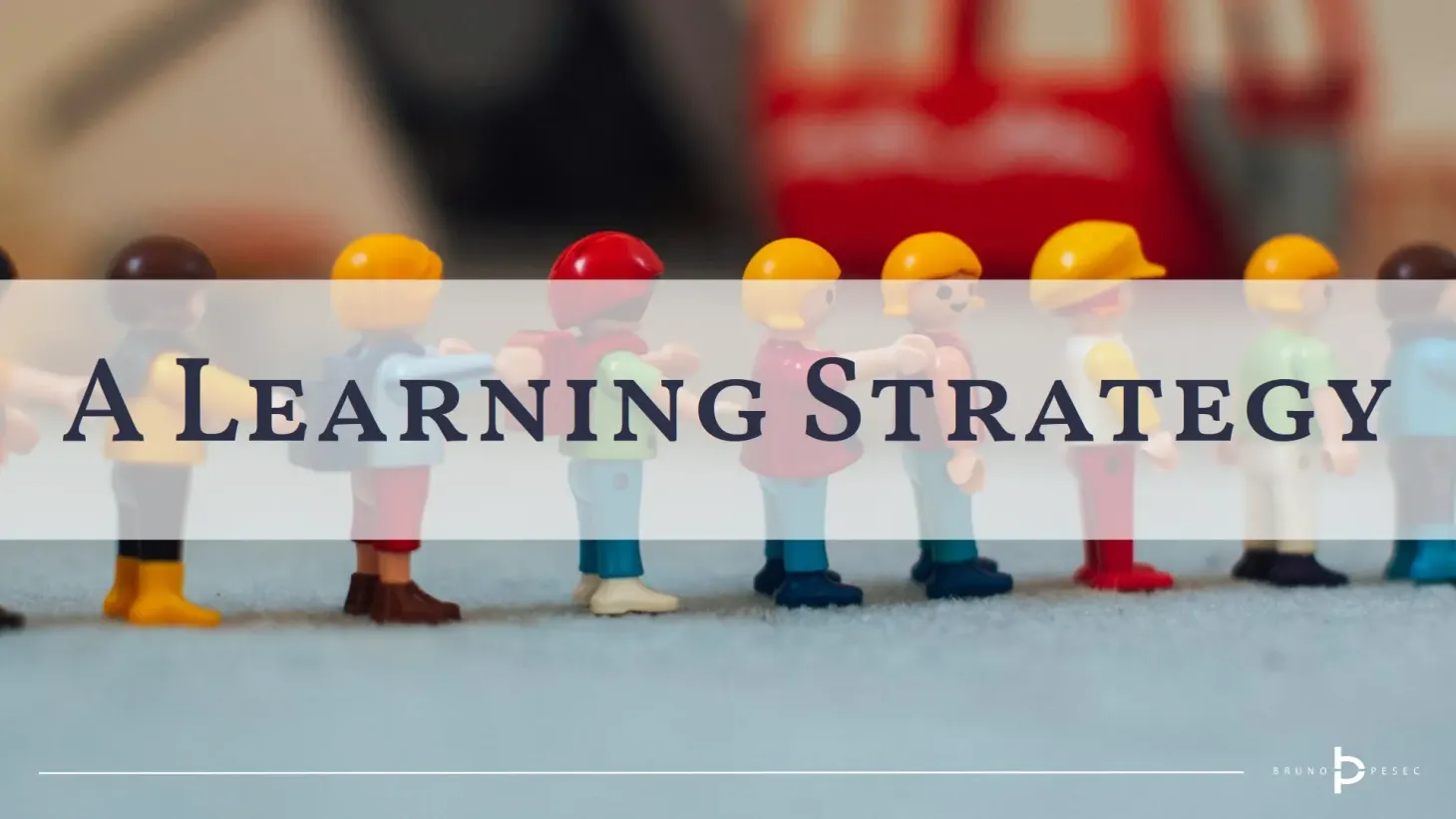The Four Growth Arenas
On how to grow fearlessly.

I've said it before, and I'll say it again:
Even seasoned veterans tend to forget that innovation—introducing new products, services, and business models—and branding—narrative that follows them—are the two most potent levers for organic growth. That holds true in times of turbulence and disruption, especially for companies that are able to meet changing customer demands.
For that reason, Matthew Fenton and I developed The Four Growth Arenas, a unique tool for leaders to quickly analyse their growth possibilities:

It is a two-by-two matrix, with innovation on the horizontal axis, and branding on the vertical.* Both are divided into two buckets: existing and new.
From there we define four arenas, sorted from less to more risky ones:
- Indomitable core. Strong base is required for sustained growth. Investments here are usually the lowest risk, but might be low return as well.
- New product line. Creating new products, services, and businesses under existing brand is a proven way to growth. The further the company is from their core competency, the riskier will the investment be.
- New category. Repackaging and repurposing existing products and services into new offerings and value propositions is another proven and often inexpensive way to grow. The more distant new brand's values are from the core brand, the higher the risk of investment.
- New venture. The most dangerous growth arena, simply because most executive mistakenly believe they are in one of the previous two arenas, when in fact, they aren't. Remember that probabilities multiply, so even if we have an initiative that is "just" "half-new" (we did something similar before) under a non-core brand, we are facing 25% success probability, not 50%.**
Growth is pretty much a numbers game. That means that every organisation must constantly have multiple initiatives in multiple arenas. Investment spread depends on the risk profile of the organisation.
Also remember that initiatives cannot be "new" forever, and those that are proven in the market should gradually slide into the core:

To learn more about the tool and how to use it, I recommend you watch this video and skim through this presentation. Reach out to discuss your specific application.
*An astute reader will notice similarity with Ansoff's strategies for diversification. That is deliberate, and our tool can easily be used alongside Ansoff's.
**If we generously assume 50% probability of success, then the formula is 0,5 × 0,5 = 0,25.
Bruno Unfiltered
Subscribe to get the latest posts delivered right to your inbox. No spam. Only Bruno.




